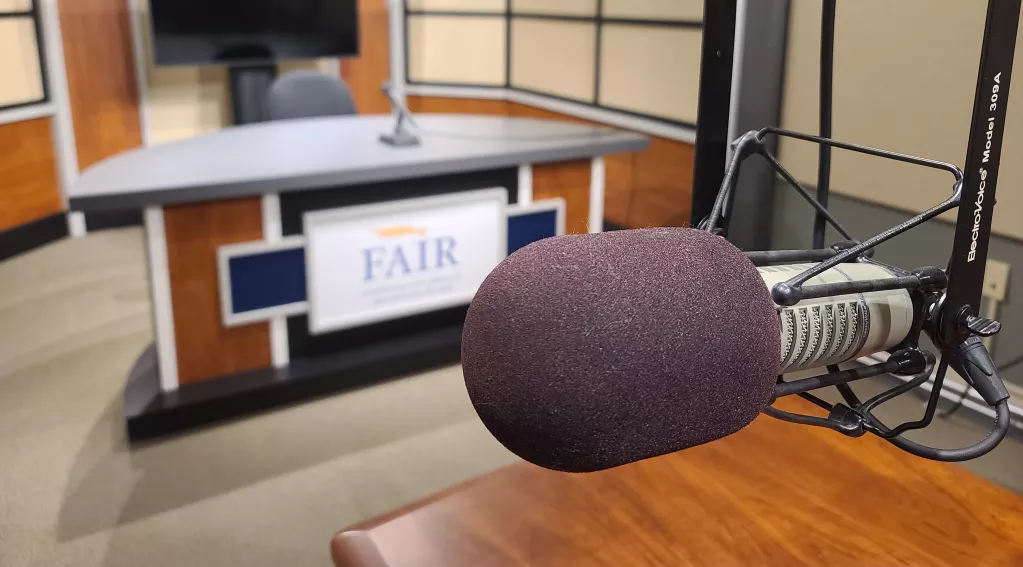Talk Radio: Thriving but Threatened Ally of Immigration Activists

Making the case for secure borders and sensible limits on immigration depends on communications access. This is getting more difficult because Woke censorship has chilled debate, and the so-called “mainstream” media has morphed into advocacy journalism. No issue has become more a casualty of bias and distortion than the immigration issue. Fortunately, vast digital platforms bypassing leftist gatekeepers have emerged offering avenues for the exchange of truth, and opportunities for grassroots organizing.
Surprisingly, one hanger-on from traditional media still offering access is radio, talk radio in particular. The format exploded after Reagan lifted the Fairness Doctrine in 1987, with Rush Limbaugh making his entry shortly thereafter. It airs on 2,017 stations, is the third most popular format in America comprising 8.2% of all listening, and enjoys robust ratings…for now. The format is vulnerable because of rapidly aging demographics, declining advertising revenues due to politically correct companies skittish about topics that challenge prevailing political orthodoxy, and sustained attacks by the left anxious to see talk radio become a dusty T-Rex. But never mind that because, for the moment, you won’t find more stalwart allies of our cause; indeed, the push for true immigration reform and talk radio has been nearly synonymous for decades. Even The Washington Post grudgingly admitted that, “talk radio killed President Bush’s attempts at immigration reform,” referring to the heated amnesty debate of 2007.
Working together, local activists and talk radio have sparked grassroots action, and while this is still possible, things have changed. The major difference is that making a call to your local talk host is no longer quite as easy.
First, talk radio heeded the advice of their media consultants and reduced the number of on-air calls, granting more time for host monologue and high-profile guest interviews. (Doing so has increased ratings, admittedly a positive trend for one of the last remaining free speech mediums.) The second challenge is that because of industry consolidation and cost-cutting, syndicated hosts are replacing local hosts so it’s more difficult to get through due to higher call volumes. The third challenge is that, frankly…our country is falling apart, and hosts are dealing with an avalanche of issues even though immigration remains a core focus. According to David “Bloomdaddy” Blomquist, afternoon host at blowtorch WTAM in Cleveland, “Immigration intersects all other issues so it’s a rare day when it’s not discussed, but it does compete for attention in a crowded, finite space.” Thus, your call must be timed precisely while the issue is being addressed; the days of meandering open phones – however cathartic – are long gone.
That said, go ahead and call. Plenty of local hosts remain and caller interaction remains the essence of this electronic town hall, but keep it short; sadly, the average human attention span has now declined to just 8.25 seconds.
However, if you’d like to enhance your influence, and possibly get wider exposure, consider this.
First, because of staff cutbacks, talk hosts are now preparing their own shows, and those fortunate few who do have producers, often must share them with other stations. This means they’re pressed to get credible information as fast and economically as possible. Complicating things is that local news media distorts – or entirely ignores – issues that are important to the host’s listeners, so it’s increasingly difficult for them to acquire accurate information on local issues. As a result, they’ve become more receptive to off-air information shared by their audience. Jim Polito, a successful New England syndicated talk host, explains that, “Maybe it’s because I was a former reporter, but reading emails and talking off-air with listeners who have street-level intelligence helps me be well-versed in what’s really going on locally. I may use that conversation — anonymously — as a catalyst for an entire show topic.”
Lesson: Instead of just calling on-air and getting sixty seconds or less, be an inside source and plant ideas for broader discussions.
A second major change which activists need to be aware of is that talk hosts are now operating multi-media operations requiring constant content; their terrestrial broadcasts are augmented by well-trafficked websites and social media feeds such as Facebook, Twitter, Instagram, Rumble and others. In fact, many hosts generate as many eyeballs as they do listeners. So, if you have compelling audio, video, pictures, or a screaming hot “whistle-blower” type of disclosure, this may be Nirvana for them.
Two caveats. Bear in mind that the talk host’s job is to generate ratings and revenue and that means they have to deliver unique entertainment and content. If you have a video of yourself getting tossed out of a city council meeting for objecting to a proposed sanctuary policy, it may be significant to you but sorry…it’s not compelling. Sadly, we’re all getting tossed out now! Also, understand the talk host is not your lawyer. If, for example, you got displaced by an illegal alien on the job, the host is not there to litigate it, and as Joyce Kaufman of WFTL Miami/Ft. Lauderdale, FL cautions, “I’m open to ideas and information but I won’t accept anything that is not well documented for liability reasons.”
That said, talk radio — de facto activists with microphones and digital platforms reaching millions — are committed to our cause but their time and resources are limited. They appreciate your listenership, and on occasion, your partnership.

